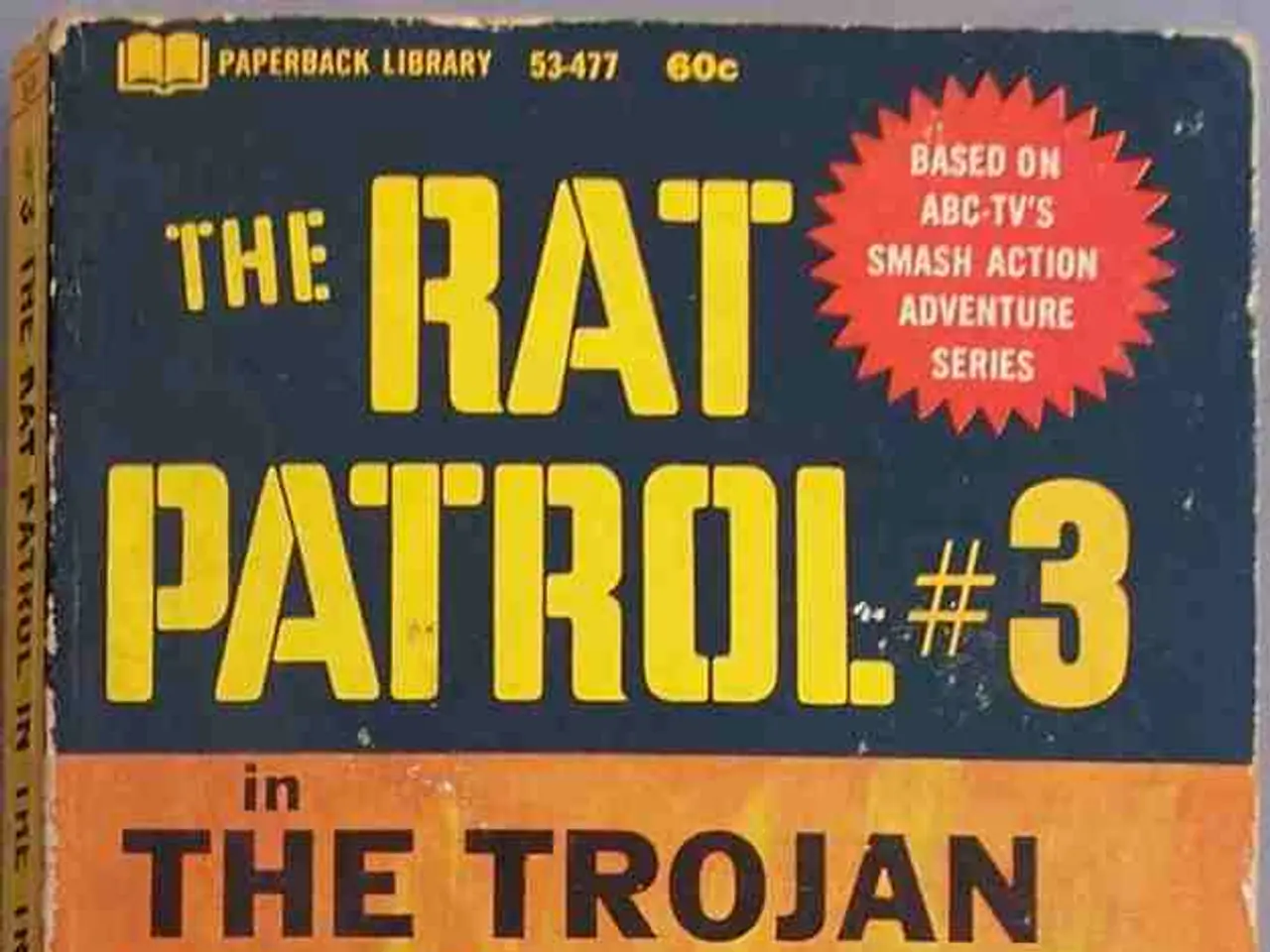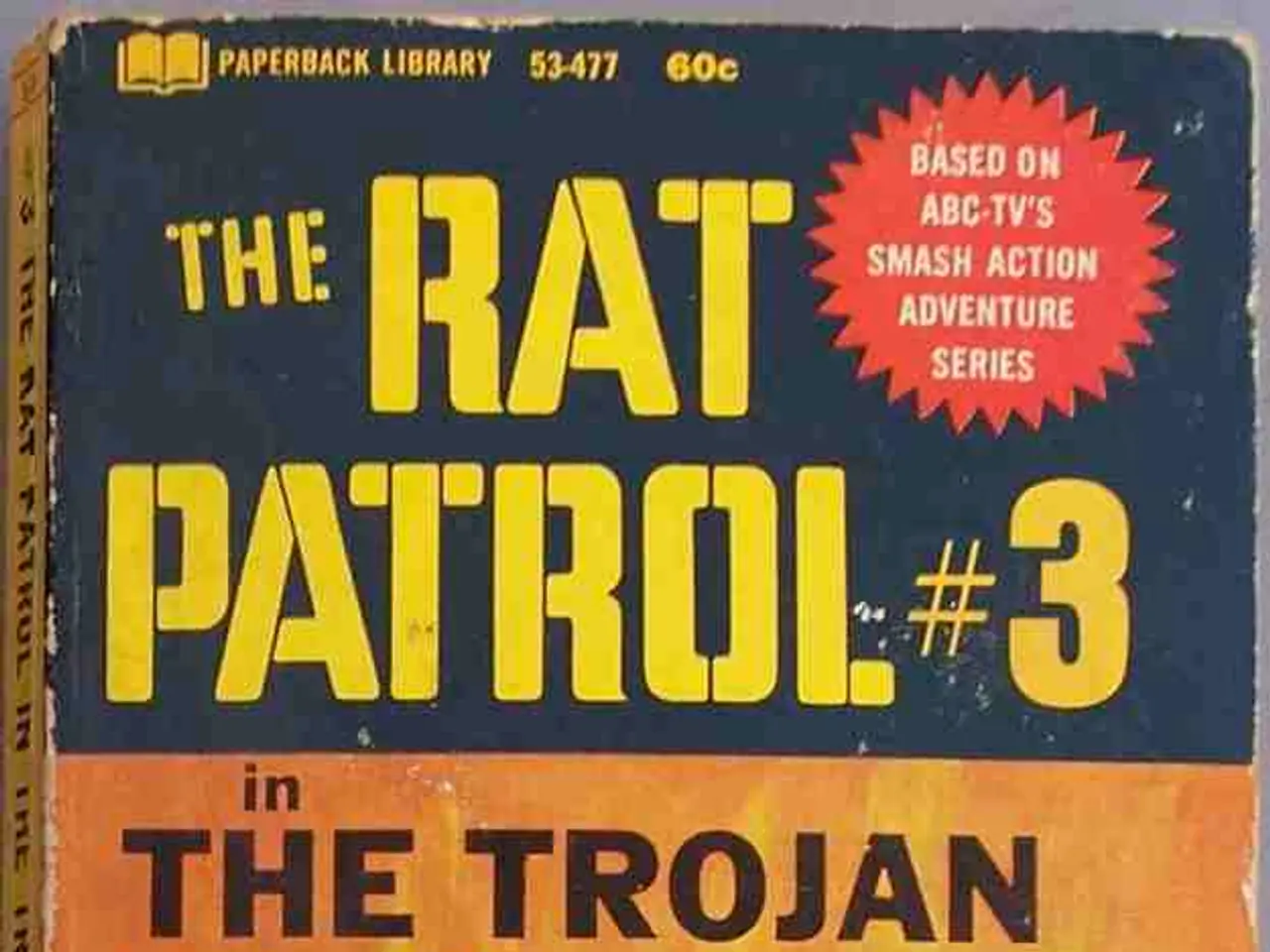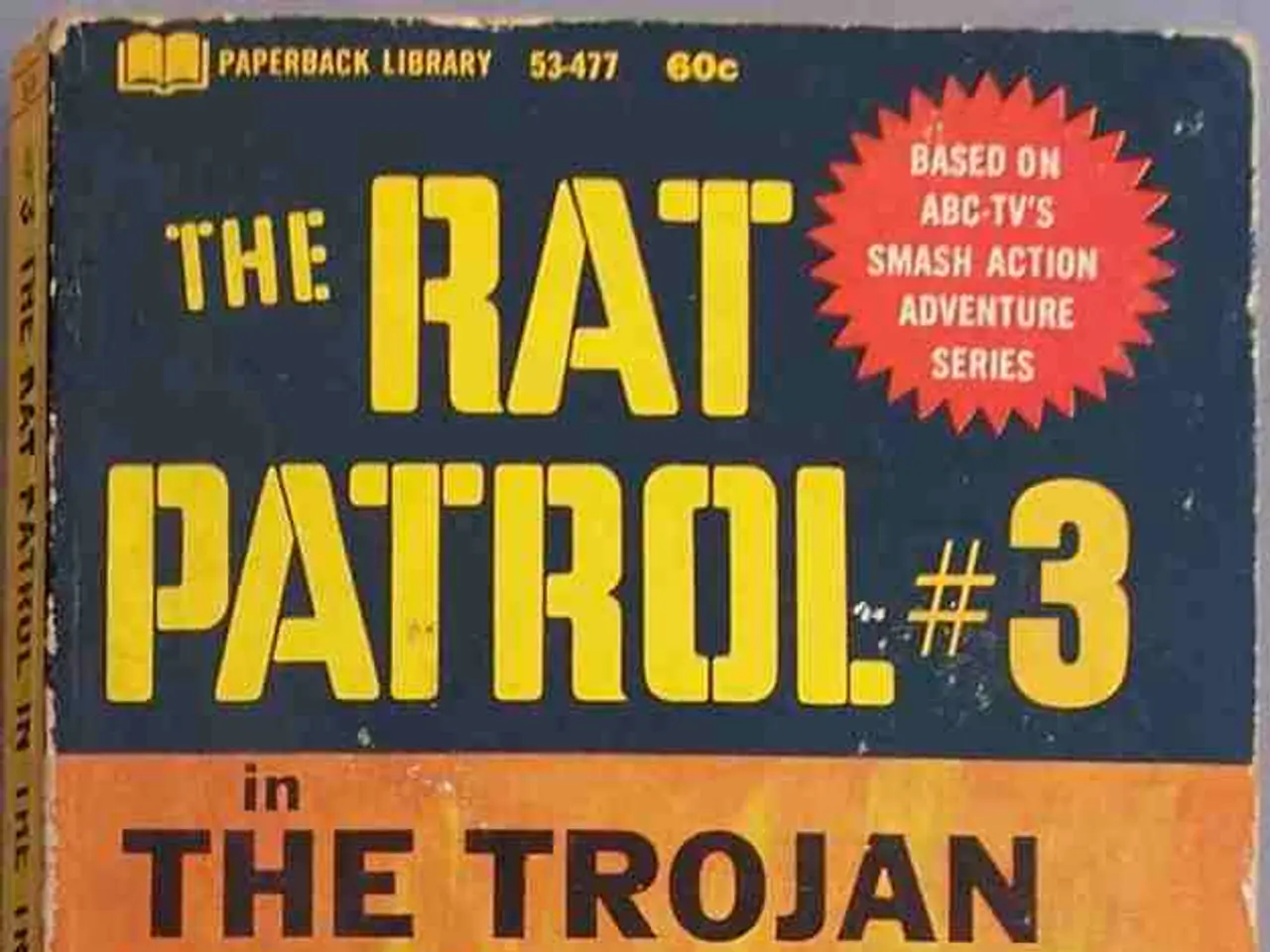Middle East Controversy Feed +++ 13:33 Israel ratchets up attacks on Tehran's regime
Israeli authorities instruct intensified offensive operations against Tehran
Here's a fresh take on the ongoing Middle East conflict:
Social Media Email Print Copy Link Israel's Defense Minister, Israel Katz, has ordered an increase in attacks on Tehran's ruling regime. Katz stated that these strikes would target symbolic targets of Iran's leadership. He also mentioned mechanisms for population suppression, like the radical Basij militia, as an example. The minister seeks to destabilize Iran’s leadership by attacking their power base, such as the elite Revolutionary Guard unit.
13:12 Macron: Europe working on comprehensive deal with Tehran According to French President Emmanuel Macron, Paris, Berlin, and London are cooking up a "comprehensive deal" to be presented to Iran at a meeting in Geneva on Friday. Macron emphasized that resuming negotiations is vital. This negotiated offer aims to cease uranium enrichment, limit Iran's missile program, and root out "terrorist group" funding in the region by Tehran, he explained. The Iranian nuclear program poses a significant threat, as Macron highlighted, noting that the threat cannot be eradicated solely by the current measures.
12:55 Heusgen: "Dialogue is better than war" Former Merkel advisor Christoph Heusgen supports negotiations between Germany, France, Britain, the EU, and Iran's foreign minister, Abbas Araghtschi. Heusgen expressed his thoughts on RTL and ntv, stating that any form of dialogue is superior to continuing the war. He stressed the importance of achieving a diplomatic solution.
12:44 Experts: Israel uninterested in agreement The likelihood of a European-led diplomatic solution to the conflict between Israel and Iran hinges on a significant change of direction from both parties, as per Middle East expert Simon Fuchs. Israel currently has no fundamental interest in an agreement, according to Fuchs, who is a professor of Islamic studies at Hebrew University in Jerusalem. "Our goal is to prevent Iran from developing any military capabilities or nuclear capabilities," says Fuchs. The nation is currently experiencing euphoria about its own military strength in a comprehensive manner. If there's no fundamental shift in mindset, Europe's efforts to find a diplomatic solution are likely to fail.
12:17 "Iran's autocratic regime leaves its people to fend for themselves" As millions flee Iran, there's no internet connection, ATMs barely dispense cash, and the autocratic regime struggles to shield them, according to German-Iranian journalist Bamdad Esmaili.
11:50 Iran claims Israel carried out drone attack on nuclear scientist in Tehran According to unconfirmed reports from Iran, Israel allegedly used a drone to attack a civilian building in Tehran, with the target being an Iranian nuclear scientist. Multiple Israeli media outlets echoed this report.
11:29 "Israel's seven-front war could escalate" A potential US military intervention in the Middle East could have far-reaching consequences for the entire region, according to Matthias Wasinger, a colonel in the Austrian Armed Forces' General Staff. Wasinger shared his thoughts in an interview with ntv, discussing the significant conflict potential in the area.
11:12 Iran rules out talks with US during Israeli attacks Iranian Foreign Minister Abbas Araghtchi has scaled back expectations for talks with his European counterparts in Geneva. "There's no room for negotiations with us until the Israeli aggression ends," Araghtchi told state TV. The minister also dismissed talks with the U.S., citing its alliance with Israel. Araghtchi will meet with foreign ministers of Germany, France, and the UK on Friday, with diplomats saying the talks have been coordinated with the U.S.
10:51 Munz: Regime change in Iran "would be an image loss for Russia" Russia has high stakes in the Middle East conflict between Israel and Iran. Correspondent Rainer Munz explains the Russian objectives and the reasons why they're limited in their actions to help Iran.
10:30 Katz: "If there's terror, Hezbollah will cease to exist" Israeli Defense Minister Katz warns Hezbollah leader Naim Qassem to tread carefully after Qassem declared that Hezbollah would act "as we see fit" in response to the conflict between Israel and Iran. "The Hezbollah leader hasn't learned from his predecessors and threatens to act against Israel," Katz says, invoking the memory of former Hezbollah leader Hassan Nasrallah, who was killed in Israeli attacks last year. "I suggest the Lebanese representative be cautious and understand that Israel has run out of patience with the terrorists threatening it," Katz adds. "If there's terror, Hezbollah will cease to exist."
10:18 Netanyahu discusses war aims and U.S. support on TV As Israel and Iran continue their mutual attacks, Netanyahu talks about the objectives of the war in an interview with an Israeli TV channel.
10:06 Be'er Sheva residents remain in a state of panic An Iranian rocket damages a populated area of Be'er Sheva, striking a residential area near an already damaged Soroka Hospital. ntv reporter Raschel Blufarb reports on the latest attacks, the growing tension in Israel, and Netanyahu's political risks.
10:00 Israeli Army targets Iranian rocket systems Israel's military reportedly attacks more Iranian rocket systems, focusing on operations disruption in Tehran and Isfahan facilities. The Israeli Air Force aims to expand its air superiority in Iranian airspace with these attacks. "Fighter jets and other aircraft of the Israeli air force continue to operate unhindered in Iranian airspace and attack military targets of the Iranian regime in western and central Iran," the military said further. Prime Minister Benjamin Netanyahu previously mentioned achieving "complete air superiority over Tehran" by the Israeli Air Force.
9:30́ Gahler calls for sanctions against Israeli ministers CDU MEP Michael Gahler, spokesman on foreign affairs and rapporteur of the EPP group in the security and defense committee, urges sanctions against Finance Minister Bezalel Smotrich and Police Minister Itamar Ben-Gvir. "Smotrich and Ben-Gvir have long distinguished themselves through particularly extreme statements, not only concerning the future of Gaza, they actively support the radical settler movement in the West Bank and have also positioned themselves against a two-state solution," Gahler told "Der Spiegel". Specifically, these two ministers "do not serve the long-term interests of Israel". A possible measure could be a travel ban or the freezing of their assets.
9:00 Thorsten Frei on US intervention uncertainty According to Chief of Staff Thorsten Frei, the possibility of US intervention in the Iran conflict remains uncertain. While there are indications suggestive of certain developments, Frei told ARD that it's still speculation how the U.S. will behave. Frei emphasized the importance of diplomacy in the context of upcoming Iran talks, including those led by German Foreign Minister Johann Wadephul in Geneva. "It's incredibly important to take up and further develop every conversation thread that exists."
8:45 Rockets hit Be'er Sheva once again According to the Israeli military, Be'er Sheva was struck by an Iranian rocket attack once more, and at least one projectile struck near residential buildings, office buildings, and industrial facilities. At least one residential complex sustained significant facade damage. At least six people were reportedly lightly injured, according to paramedics. Footage shows burning cars, thick smoke, and broken windows on residential buildings. CNN reports fires near office buildings, including a Microsoft representation. Be'er Sheva has been targeted by Iranian attacks in recent days.
08:00 Israel reports attack on Atomic Weapons project research facility The Israeli Air Force reportedly attacked dozens of targets in Iran overnight, including military facilities for producing rockets, the headquarters of a research facility for the Iranian "atomic weapons project," and several industrial facilities for producing rockets in Tehran’s vicinity. These facilities are vital for the Iranian Defense Ministry. Additionally, a mentioned component for the Iranian nuclear weapons project was targeted.
7:45 Wadephul hopes to prevent escalation - Israel can rely on Germany According to Foreign Minister Johann Wadephul, the planned meeting with his Iranian counterpart Abbas Araghchi is taking place at a critical juncture. "The situation is incredibly tense, making it hard to predict the future course of events," said Wadephul to Spiegel. "Hope is not a diplomatic tactic, talks are." Wadephul, France's Foreign Minister Jean-Yves le Drian, and the UK's Foreign Secretary Liz Truss will meet Araghchi in Geneva. After discussing whether the German government will aid Israel if Iran continues its attacks and casualty numbers rise, Wadephul stated: "I warn Tehran against violating international agreements and escalating the conflict. However, you cannot rule it out. Israel can always count on Germany."
As the conflict between Israel and Iran escalates, Israel maintains its air superiority through continuous attacks on Iranian military targets, while Iran continues launching missile and drone attacks. European countries, recognizing the urgency of the situation, negotiate a comprehensive deal with Iran and attempt to engage Iranian officials in talks, hoping to reach a diplomatic solution. The potential consequences of unremitting hostilities include regional war, Iran's regime destabilization, and lasting political upheaval in the Middle East.
- In light of Israel's increased attacks on Tehran's ruling regime and the ongoing peace and security concerns in the Middle East, European nations, including France, Germany, and the UK, are working diligently to present a comprehensive deal to Iran, aiming to halt uranium enrichment, restrict Iran's missile program, and curb the funding of terrorist groups in the region by Tehran.
- As the Middle East conflict intensifies, with Israel asserting its air superiority through relentless attacks on Iranian military targets, and Iran retaliating with missile and drone strikes, the importance of political cooperation and dialogue to prevent a regional war, Iran's regime destabilization, and lasting political upheaval in the Middle East cannot be overstated.





